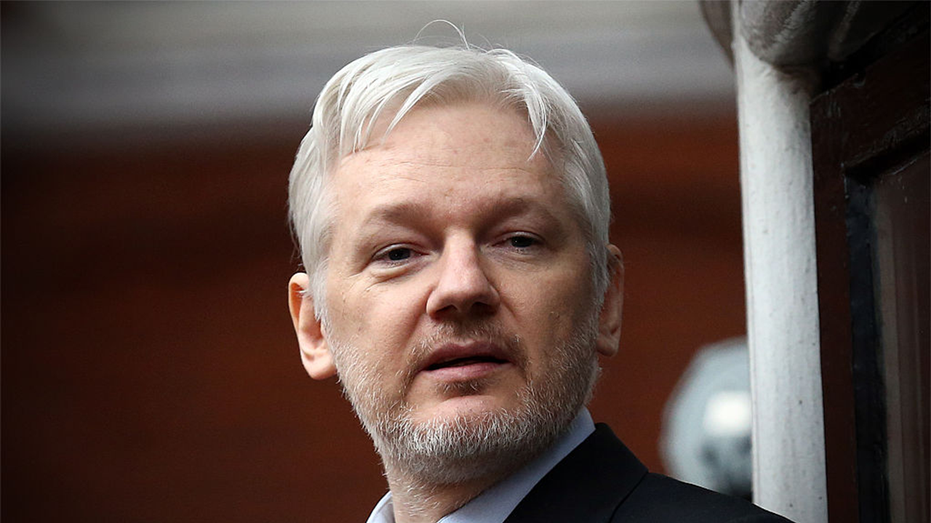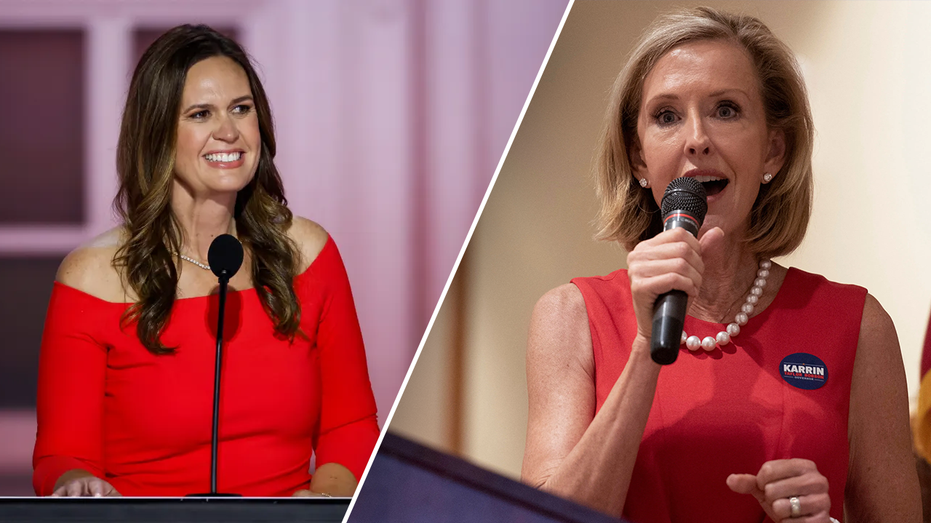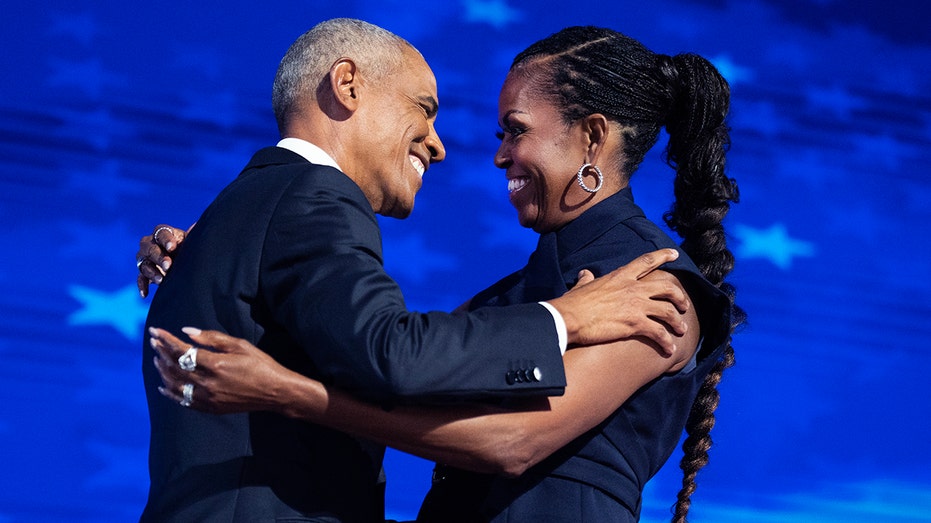The Australian Parliament voted overwhelmingly to call on the U.S. and U.K. Governments to end the prosecution of Wikileaks founder Julian Assange, and a group of more than 35 U.S. lawyers wrote a letter urging the U.S. Justice Department to drop the charges against the Australian journalist.
This comes ahead of a hearing about Assange’s possible final legal appeal challenging his extradition from the U.K. to the U.S. to face charges for publishing classified U.S. military documents. The hearing will be held at the High Court in London on Tuesday and Wednesday.
If he is extradited to the U.S. after exhausting all his legal appeals, Assange, 52, would face trial in Alexandria, Virginia, and could be sentenced to up to 175 years in an American maximum-security prison.
The motion from the Australian Parliament, which was brought by Independent member Andrew Wilkie, passed on Wednesday by a vote of 86 to 42. Prime Minister Anthony Albanese of the Labor Party voted in favor of the motion, while most members of the conservative opposition coalition opposed it.
UK HIGH COURT SETS DATE FOR JULIAN ASSANGE’S FINAL APPEAL CHALLENGING US EXTRADITION
The parliamentary motion emphasized “the importance of the UK and USA bringing the matter to a close so that Mr. Assange can return home to his family in Australia.”
The Australian publisher is facing 17 charges for allegedly receiving, possessing and communicating classified information to the public under the Espionage Act, and one charge alleging a conspiracy to commit computer intrusion.
The charges were brought by the Trump administration’s Justice Department over WikiLeaks’ 2010 publication of cables leaked by U.S. Army intelligence analyst Chelsea Manning detailing war crimes committed by the U.S. government in Iraq, Afghanistan and the Guantánamo Bay, Cuba, detention camp. The materials also exposed instances of the CIA engaging in torture and rendition.
WikiLeaks’ “Collateral Murder” video showing the U.S. military gunning down civilians in Iraq, including two Reuters journalists, was also published 14 years ago.
Wilkie told the Parliament ahead of the vote that the motion “will send a powerful political signal to the British government and to the U.S. government.”
During the debate, Wilkie urged fellow members of Parliament to support the motion because it was “time for all of us to take a stand” and “We’ve just about run out of time to save Julian Assange.”
Labor Party member Josh Wilson told Parliament that the same material that prompted the charges against Assange had been “published without legal consequence by media organizations in the United States.”
In 2022, the editors and publishers of U.S. and European outlets that worked with Assange on the publication of excerpts from the more than 250,000 documents he obtained in the Cablegate leak – The Guardian, The New York Times, Le Monde, Der Spiegel and El País – wrote an open letter calling for the U.S. to drop the charges against Assange.
The Obama administration in 2013 decided not to indict Assange over WikiLeaks’ 2010 publication of the classified cables because it would have had to also indict journalists from major news outlets who published the same materials, which has been described as “The New York Times problem.” Former President Obama also commuted Manning’s 35-year sentence for violations of the Espionage Act and other offenses to seven years in January 2017, and Manning, who had been imprisoned since 2010, was released later that year.
But the Justice Department under former President Trump later moved to indict Assange under the Espionage Act, and the Biden administration has continued to pursue his prosecution.
Albanese has repeatedly said in the last year that the U.S. should halt its extradition requests and that it is time to bring Assange’s case to a conclusion.
Last year, a cross-party delegation of Australian lawmakers visited Washington, D.C., and met with U.S. officials, members of Congress and civil rights groups to demand the charges against Assange be dropped. Multiple bipartisan efforts were also made last year by U.S. lawmakers who called for Assange’s release.
Assange has been held at London’s high-security Belmarsh Prison since he was removed from the Ecuadorian Embassy on April 11, 2019, for breaching bail conditions. He had sought asylum at the embassy since 2012 to avoid being sent to Sweden over allegations he raped two women because Sweden would not provide assurances it would protect him from extradition to the U.S. The investigations into the sexual assault allegations were eventually dropped.
Australia’s Attorney General Mark Dreyfus said Assange’s extradition case was raised when he met with U.S. Attorney General Merrick Garland in Washington, D.C., last month.
“This was a private discussion, however, this government’s position on Assange is very clear, and has not changed,” Dreyfus said in a statement. “It is time this matter is brought to an end.”
In the U.S., lawyers from various academic institutions across the country wrote a letter to Garland saying they “strongly urge the Department of Justice to end its efforts to extradite Wikileaks founder Julian Assange to the United States and to drop the charges against him under the Espionage Act.”
“Our personal views on Assange and WikiLeaks vary, and we are not writing to defend them in the court of public opinion. But when it comes to courts of law, we are united in our concern about the constitutional implications of prosecuting Assange,” the lawyers wrote in the letter dated Wednesday, adding that they “believe the Espionage Act charges against him pose an existential threat to the First Amendment.”
The letter cites the U.S. Supreme Court ruling in numerous instances that journalists may publish true and newsworthy information even if their sources obtained the information unlawfully.
The lawyers also note that the indictment against Assange accuses him of “recruit[ing] sources” and “soliciting” confidential documents by maintaining a website indicating that it accepts confidential materials.
BIPARTISAN CONGRESSIONAL RESOLUTION CALLS ON US OFFICIALS TO DROP CHARGES AGAINST ASSANGE
“Award-winning journalists everywhere also regularly ‘recruit’ and speak with sources, use encrypted or anonymous communications channels, receive and accept confidential information, ask questions to sources about it, and publish it,” they wrote. “That is not a crime — it’s investigative journalism. As long as they don’t participate in their source’s illegality, their conduct is entitled to the full protection of the First Amendment.”
The lawyers further argued that the fallout from prosecuting Assange could extend beyond the Espionage Act and national security journalism, saying that the case could “enable prosecution of routine newsgathering under any number of ambiguous laws and untested legal theories” and there have already been instances where prosecutors “test the outer limits of some such theories in cases against journalists.”
“The Justice Department under your watch has spoken about the importance of newsgathering and ensuring the First Amendment rights of reporters are protected, even when stories involve classified information,” the lawyers told Garland. “You have also strengthened the Justice Department’s internal guidelines in cases involving reporters. We applaud these efforts. But a prosecution of Assange under the Espionage Act would undermine all these policies and open the door to future Attorneys General bringing similar felony charges against journalists.”
No publisher had been charged under the Espionage Act until Assange, and many press freedom groups have said his prosecution sets a dangerous precedent intended to criminalize journalism. U.S. prosecutors and critics of Assange have argued WikiLeaks’ publication of classified material put the lives of U.S. allies at risk, but there is no evidence that the publishing of the documents put anyone in danger.




